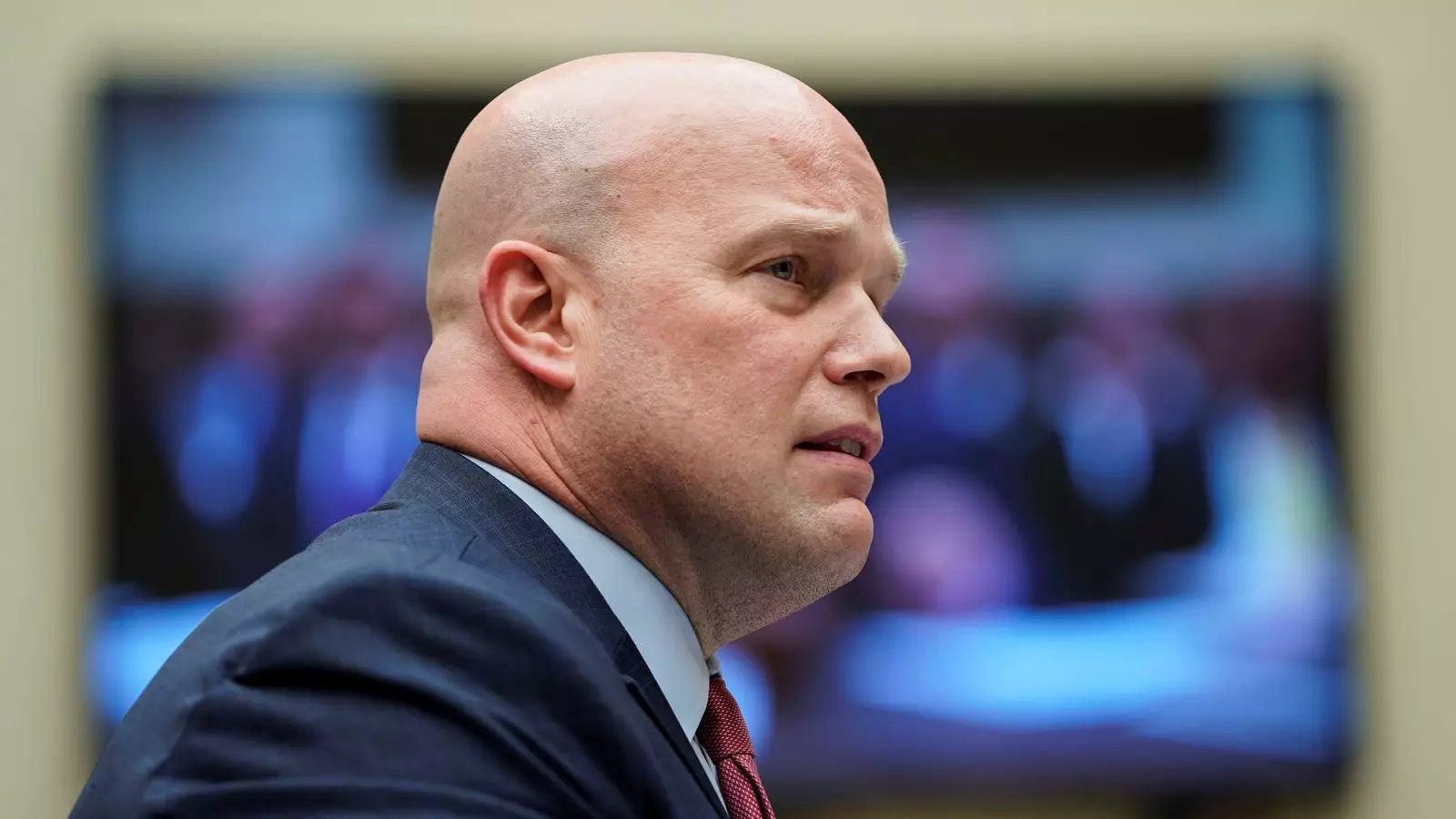The recent call from the United States demanding NATO allies, particularly the UK, to commit a hefty 5% of their GDP to defense spending has sent shockwaves through the political landscape. This isn’t merely a request; it’s a declaration from an ally positioning itself as the “keeper of the peace.” Matthew Whitaker, Donald Trump’s envoy to NATO, left little room for misinterpretation, stating, “Peace through strength means nothing less.” This rhetoric is a clear push for an unprecedented commitment that could irrevocably alter the military and financial strategies of member nations.
As nations like the UK grapple with their obligations, the insistence on a 5% spending level raises certain contentious issues. Is this truly about security, or is it an economic maneuver robustly masked as patriotism? The implications are dire for both domestic fiscal policies and international relations. It’s inconceivable to think that a group of diverse nations would simultaneously embark on such a sweeping financial obligation without serious debate about the aftermath.
The UK’s Dilemma
The situation in the UK presents a particularly complex dilemma. Prime Minister’s reluctance to even meet the baseline suggestion of 3% spending by 2034, which he previously pitched as merely an “ambition,” demonstrates a chasm between political rhetoric and action. The new Labor leader, Sir Keir Starmer, finds himself cornered, tasked with aligning party principles with the mounting external pressure that seems inexorable. The MoD’s internal bewilderment signals a profound concern about the UK’s defensive posture, hinting that any confidence in current funding levels may be dangerously misplaced.
Starmer’s push toward a 3.5% commitment in tandem with a 1.5% on defense-related spheres illustrates a mandatory pivot—not just a budgetary adjustment, but a comprehensive overhaul of the UK’s defense strategy. Nevertheless, such expenditures could escalate public discontent in a nation that is still grappling with multiple economic challenges stemming from the pandemic and the subsequent energy crisis.
The European Landscape
The sentiments echoed by NATO Secretary General Mark Rutte paint a bleak future should European nations cling to the status quo, which currently caps defense spending at 2% of GDP. His stark prediction, that a failure to adapt will thrust coalition states into “great difficulty,” challenges the prevailing wisdom of complacency that has marked European defense spending for decades. For far too long, nations have relied on the overarching protective umbrella provided by U.S. military might while neglecting to fortify their own defenses.
Rutte presents a compelling argument for parity in spending—a notion steeped in fairness, especially considering the stark contrast between U.S. spending and that of its European allies. But here lies the rub: can European nations genuinely reconcile increased defense spending with pressing domestic needs such as healthcare and education? Vulnerable governments may find themselves on a precipice, forced to choose between national security and the social contract citizens expect.
The Underlying Intentions
Peeling back the layers of this financial ultimatum uncovers more than mere military readiness; it hints at deeper geopolitical strategies. The insistence on higher spending could very well be interpreted as a move to consolidate American leadership within NATO, reinforcing its position as the ultimate decision-maker on security matters. The U.S. administering defense contracts and acquiring lucrative economic opportunities can be seen as a dual play—bolstering military alliances while driving domestic profits.
In a more unsettling manner, this call to ramp up defense spending could serve to exacerbate tensions. With Russia continuing to present a security threat, the cycle of escalation slows any potential for diplomatic resolution. The U.S.’s expectations create a systemic environment where aggressive postures toward adversaries are normalized within NATO alliances—intensifying an arms race that no strategist should wish for.
Embracing a path of heightened militarization is a gamble that could alter alliances and shift the balance of power in a dangerous game where the stakes are humanity and global stability. As NATO members march towards this new financial commitment, they must navigate their national interests carefully, lest they sow seeds of discontent at home and act as unwitting agents of discord on the global stage.

Leave a Reply